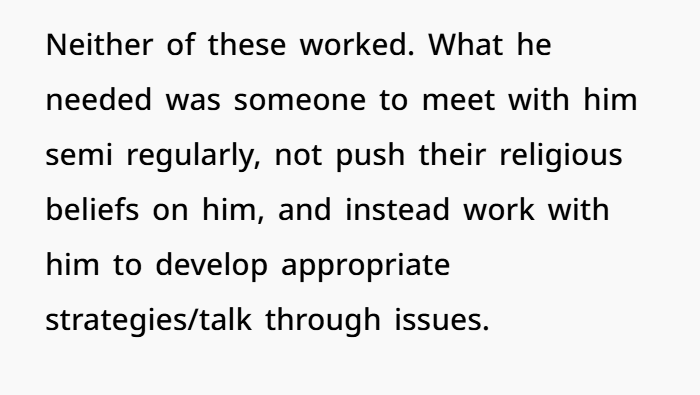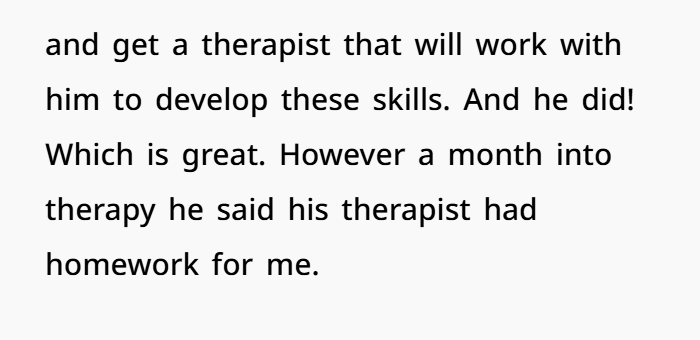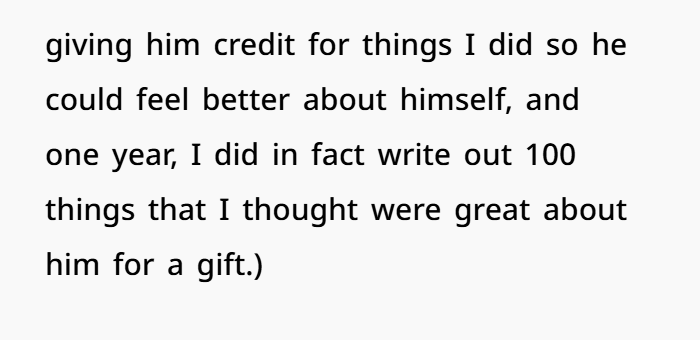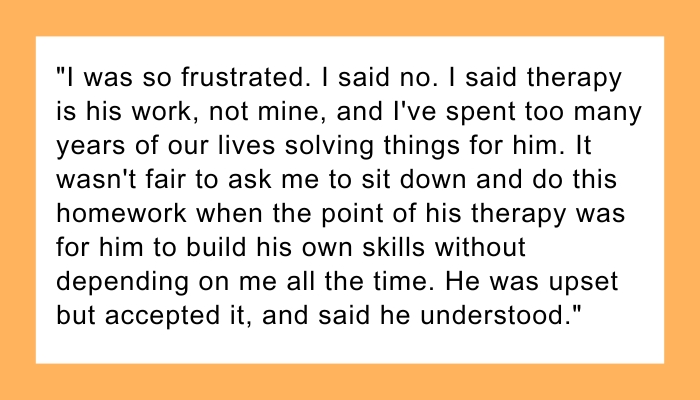Wife Draws The Line When Needy Hubby’s Therapist Assigns Her Homework Asking Her To Praise Him
A strong relationship is like a two-way street. Both people must care for each other and share the work of keeping the connection strong. When only one partner is giving time, energy, and support, it creates an unfair balance. Over time, this can lead to emotional burnout, stress, and even resentment.
This is exactly what happened to a woman who always looked after her husband’s needs. She was the one carrying the emotional load in the marriage. While he relied on her for everything, she had no space left for her own peace and well-being. Things got worse when he asked her to complete his therapy homework—something his mental health counselor had given him. That was the final straw for her. She felt completely overwhelmed.
When one partner gives too much without receiving enough in return, it’s time to consider relationship counseling or marriage advice to fix the imbalance. A healthy relationship needs teamwork, understanding, and mutual care.
Read for more info Reddit
A healthy relationship involves a lot of give-and-take, but if one person is only taking and hardly ever giving, it can cause a massive strain
The poster explained that she had been with her husband for a decade and that during that time, he had been trying out several different therapists

















The poster refused to do the homework because she found it draining, and she also didn’t want to have to manage yet another one of the tasks he should be doing
The woman in this situation felt constantly overwhelmed because her husband couldn’t handle basic everyday tasks on his own. Over their 10-year relationship, she had become the one managing almost everything. Naturally, this took a toll on her energy, peace of mind, and emotional health.
Dealing with emotionally needy partners is never easy. Such individuals may become overly attached and fail to realize when they’re asking too much. This often stems from childhood experiences or past trauma, and it can develop into a pattern that’s hard to break without mental health therapy.
In this case, the husband didn’t mean to be a burden. In fact, he had tried to improve by seeing different therapists. But as his wife shared, while he was a good person and loving partner, it was his dependence on her for everything—from daily tasks to emotional reassurance—that eventually became too much.
This is a classic sign of a codependent relationship. He wasn’t just relying on her physically, but emotionally as well. People with emotional dependence often feel insecure and anxious, constantly seeking comfort, validation, and support from their partner. Unfortunately, expecting one person to carry that kind of emotional weight can be exhausting and unhealthy.
This story is a reminder of how important it is to maintain balance in relationships. Seeking marriage counseling and encouraging personal growth can help. But most importantly, partners must practice self-care in relationships and set healthy emotional boundaries.
Things finally reached a breaking point when the husband told his wife that his therapist had given her some therapy homework. She was shocked to hear the assignment—it was to write a list of all his best qualities. After spending years mothering him, praising him for small efforts just to keep him going, this request felt frustrating and unfair.
Naturally, she refused. This led to conflict between the couple.
In most cases, individual therapy is meant to help the patient grow and work through their own personal issues. The therapist usually assigns tasks only to the person in treatment. These assignments help them develop better coping skills and manage everyday challenges. So it didn’t make sense for the therapist to give the wife work, especially since they were not in couples therapy.
The woman explained to her husband that she already felt emotionally drained and didn’t think it was right for her to do more. She had already carried the weight of the relationship for years. This request added to her emotional labor—a term that describes the unseen work of managing someone else’s emotions and well-being.
This situation shows how important relationship boundaries are. When a relationship becomes too one-sided, the partner doing all the giving can feel resentful and emotionally exhausted. If this hurt is not discussed openly, it can lead to deeper issues, like toxic relationship dynamics and long-term emotional damage.
To move forward in a healthy way, couples need to talk honestly, support each other’s growth, and respect personal limits. Hopefully, this woman can now set stronger boundaries and make her needs just as important as her partner’s.
Folks were on the woman’s side and wondered how the man must have presented the situation to his therapist to make her side with him to such an extent










